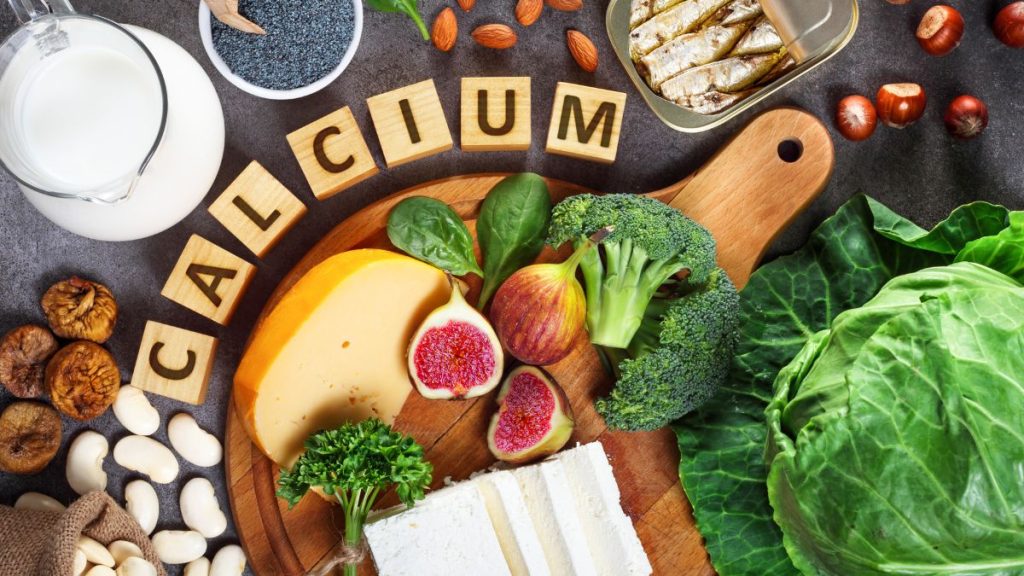Strong bones are essential for overall health, mobility, and injury prevention. While exercise plays a role in maintaining bone density, diet is just as important. Eating the right foods provides essential nutrients like calcium, vitamin D, and magnesium, which help build and maintain strong, healthy bones. Understanding which foods support bone health can help prevent conditions like osteoporosis and fractures.
Why is diet important for bone health?
Bones are living tissue that constantly break down and rebuild. Without the right nutrients, bones can weaken over time, increasing the risk of fractures and osteoporosis. Nutrients like calcium, vitamin D, magnesium, and protein play a key role in bone strength by supporting bone formation, repair, and density.
A balanced diet that includes a variety of bone-boosting foods can help maintain strong bones and overall health.
What are the best foods for bone health?
Including the following foods in your diet can improve bone strength and prevent bone loss.
1. Dairy Products
Milk, cheese, and yogurt are some of the best sources of calcium, which is essential for bone density. One cup of milk contains about 300 mg of calcium, helping you meet the recommended daily intake of 1,000–1,200 mg. Yogurt and cheese also provide probiotics, which support gut health and improve calcium absorption.
2. Leafy Green Vegetables
Dark leafy greens like spinach, kale, collard greens, and bok choy are excellent plant-based sources of calcium. They also contain vitamin K, which plays a role in bone mineralization and reduces fracture risk. Adding a serving of greens to your meals can boost your calcium intake, especially for those who avoid dairy.
3. Fatty Fish
Salmon, sardines, and mackerel provide both calcium and vitamin D. Vitamin D helps the body absorb calcium and supports overall bone health. A 3.5-ounce serving of salmon contains about 570 IU of vitamin D, helping you meet the daily recommended intake of 600 IU. Sardines are also unique because they contain small, edible bones that provide additional calcium.
4. Nuts and Seeds
Almonds, walnuts, chia seeds, and flaxseeds are rich in magnesium, which helps convert vitamin D into its active form for calcium absorption. Just one ounce of almonds provides about 80 mg of magnesium. Sesame seeds are another great source, containing calcium and phosphorus, both of which support bone structure.
5. Beans and Lentils
Beans and lentils are high in calcium, magnesium, and phosphorus—three key minerals for bone health. They also provide plant-based protein, which is essential for maintaining bone and muscle mass. Black beans, chickpeas, and lentils can be included in soups, salads, or main dishes to support stronger bones.
6. Eggs
Egg yolks contain vitamin D, making them a convenient option for those looking to increase their intake. While they do not provide as much vitamin D as fatty fish, they can still contribute to overall bone health when included in a balanced diet.
7. Fortified Foods
Some foods, such as orange juice, plant-based milks (almond, soy, oat), and cereals, are fortified with calcium and vitamin D. These options are especially beneficial for people who do not consume dairy. A single cup of fortified orange juice can provide up to 300 mg of calcium.
8. Tofu and Tempeh
Soy-based foods like tofu and tempeh are rich in calcium and protein, making them excellent choices for bone health. Some varieties of tofu contain up to 350 mg of calcium per serving, making it a great alternative to dairy.
9. Bone Broth
Bone broth is packed with collagen, which supports bone flexibility and joint health. It also contains minerals like calcium, phosphorus, and magnesium, all of which contribute to stronger bones. Drinking bone broth regularly can help improve overall bone strength and mobility.
10. Fruits Rich in Vitamin C
Citrus fruits, berries, and kiwi contain vitamin C, which is essential for collagen production. Collagen is a protein that gives bones their structure and flexibility, reducing the risk of fractures. Oranges, strawberries, and bell peppers are excellent sources of vitamin C to include in your diet.
How can you improve bone health through diet?
To build and maintain strong bones, follow these dietary tips:
- Consume enough calcium – Aim for 1,000–1,200 mg per day from dairy, greens, and fortified foods.
- Increase vitamin D intake – Spend time in the sun and eat fatty fish, eggs, or fortified foods to support calcium absorption.
- Add magnesium-rich foods – Nuts, seeds, and whole grains help regulate calcium and vitamin D levels.
- Eat protein-rich foods – Protein supports bone structure and muscle mass, which helps protect bones.
- Limit processed foods – Excess salt, sugar, and caffeine can interfere with calcium absorption.
Key Takeaways
- A nutrient-rich diet is essential for strong, healthy bones and preventing bone loss.
- Calcium, vitamin D, magnesium, and protein are key nutrients that support bone health.
- Dairy, leafy greens, fatty fish, nuts, and fortified foods provide the best sources of bone-boosting nutrients.
- Collagen-rich foods like bone broth and vitamin C-rich fruits improve bone flexibility and strength.
- A balanced diet combined with regular exercise helps maintain optimal bone density.
Eating the right foods can make a significant difference in long-term bone health. By incorporating these nutrient-rich options into your meals, you can build stronger bones and reduce the risk of fractures and osteoporosis.




